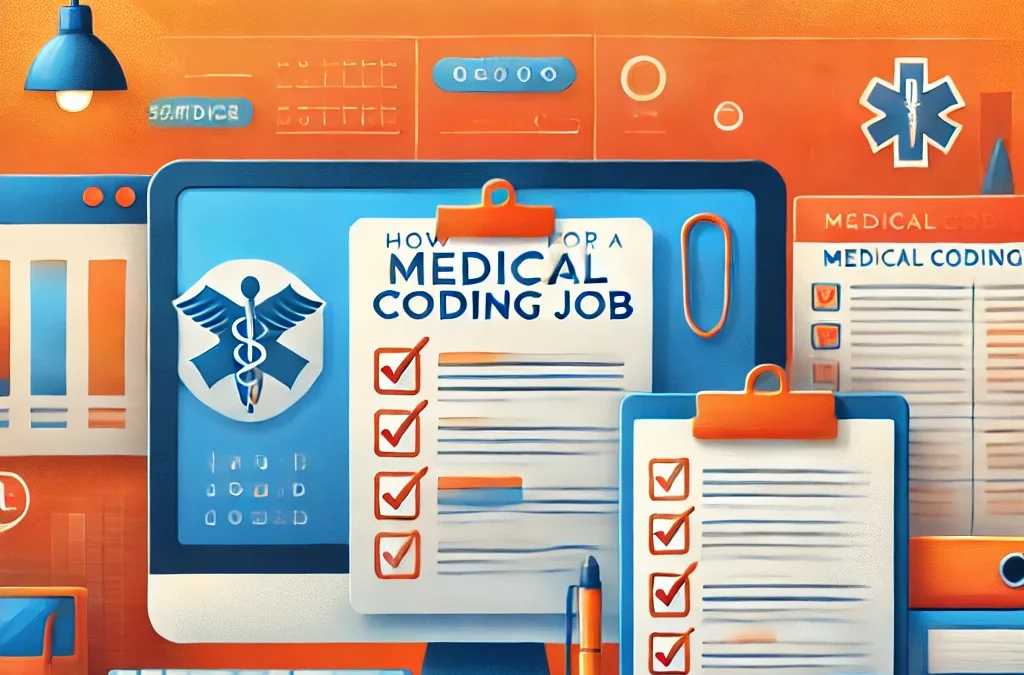How to Prepare for a Medical Coding Job
A career in medical coding offers stability, flexibility, and the opportunity to work in healthcare without direct patient care. If you’re
considering a career as a medical coder, preparation is key to landing your first job and building a successful career.
Introduction to Medical Coding Careers
Medical coders translate healthcare services, diagnoses, and procedures into standardized codes used for billing and insurance claims.
This role is essential in ensuring accurate payments and maintaining patient records.
Educational Requirements for Medical Coding Jobs
- High school diploma or equivalent is required.
- Completing a medical coding course helps build foundational skills.
Certifications for Medical Coders
- Certified Professional Coder (CPC)
- Certified Coding Specialist (CCS)
- Additional certifications for specialized coding areas
Gaining Practical Experience
- Internships and externships provide hands-on experience.
- Volunteering at clinics or hospitals can help build your resume.
How to Build a Strong Resume for Medical Coding Jobs
Highlight relevant certifications, such as CPC or CCS, and include any practical experience from internships or volunteering. Use
industry-specific keywords to pass through applicant tracking systems.
Preparing for Medical Coding Job Interviews
- Practice answering common interview questions related to coding.
- Be prepared to demonstrate your coding knowledge with practical examples.
Remote Medical Coding Jobs
- Many companies offer remote coding opportunities.
- Ensure you have the necessary tools, such as reliable internet and coding software.
Importance of Networking and Joining Professional Communities
- Connect with other professionals through online forums and local events.
- Networking can open doors to job opportunities and mentorship.
Developing Skills Beyond Medical Coding
- Time management and organizational skills are crucial.
- Communication and teamwork are essential, especially in larger organizations.
Staying Updated with Industry Changes
Continuing education ensures you stay current with coding guidelines. Follow industry news and trends to maintain your competitive edge.
Overcoming Challenges in Medical Coding Careers
- Manage tight deadlines by creating a structured work routine.
- Avoid burnout by taking regular breaks and practicing self-care.
Career Growth Opportunities in Medical Coding
With experience, you can move into supervisory roles or specialize in areas such as auditing or compliance. These roles offer higher
salaries and more responsibilities.
Conclusion – Take the First Step Toward Your Medical Coding Career
Preparation is essential for landing your first medical coding job. With the right education, certifications, and practical experience,
you’ll be well on your way to a rewarding career in this growing field.
FAQs
How long does it take to become a medical coder?
It typically takes 6 months to 1 year, depending on the program and study schedule.
What certifications are most valuable for medical coding?
The CPC and CCS certifications are among the most recognized in the industry.
Can I work from home as a medical coder?
Yes, many companies offer remote medical coding positions.
How do I gain experience before getting a job?
Look for internships, externships, or volunteer opportunities in healthcare settings.
Is medical coding a stressful career?
It can be demanding, but with good time management, it is manageable and rewarding.


Recent Comments